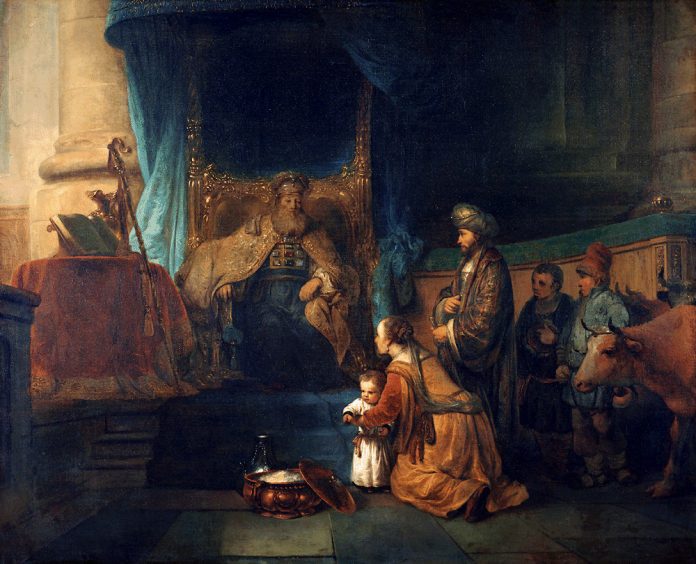
Today’s reading from Samuel, telling the origin story of our biblical hero, ends with the words of the prophet, ‘speak, Lord, for thy servant is listening‘. Samuel’s name in Hebrew, given to him by his mother Hannah, is derived from the verb ‘to listen’. Such is the task of a prophet, to hear the word of God, and hand it on to others, so that they may live it out. But the voice of God speaks in silence, as the later prophet Elijah discovered (1 Kings 19:11-13). In our world, so drenched in noise of all sorts, so many cannot hear God’s word, especially His voice in the depths of their heart and their conscience. Such trouble Blaise Pascal, who spends much of his Pensées warning against distraction – and this was in the world of the 17th century, without internet, smartphones, television, earbuds, continuous news streaming, and all the rest of it.
The priest this morning in our homily urged us to repeat the words of Samuel, especially if we wake up randomly in the middle of the night, but anytime, really, to spend time in silence, at home, on a walk, in church, to hear what God wants to speak to us. You may be surprised at what He has to say.
On that note, here are two renditions of Simon and Garfunkel’s 1964 poetic ballad The Sound of Silence. Sure, it’s not overtly religious, and still less Catholic, but the lines ‘the people bowed and prayed, to the neon god they’d made‘ have always stuck with me. This was in the early era of television, and one can only wonder at what might now be said, with all the distracting idols that lead us away from the true God, who may Himself say the lines, ‘hear my words, that I might teach you‘.
A choir director once mentioned that music is more about the rests than the notes (see, for example, here) – that is, the silence between the notes, and there is much truth to that. We wait in anticipation, as God’s own harmony bursts forth upon the world.
And here is an updated, harmonic version by my favorites vocal group, Voces8:









